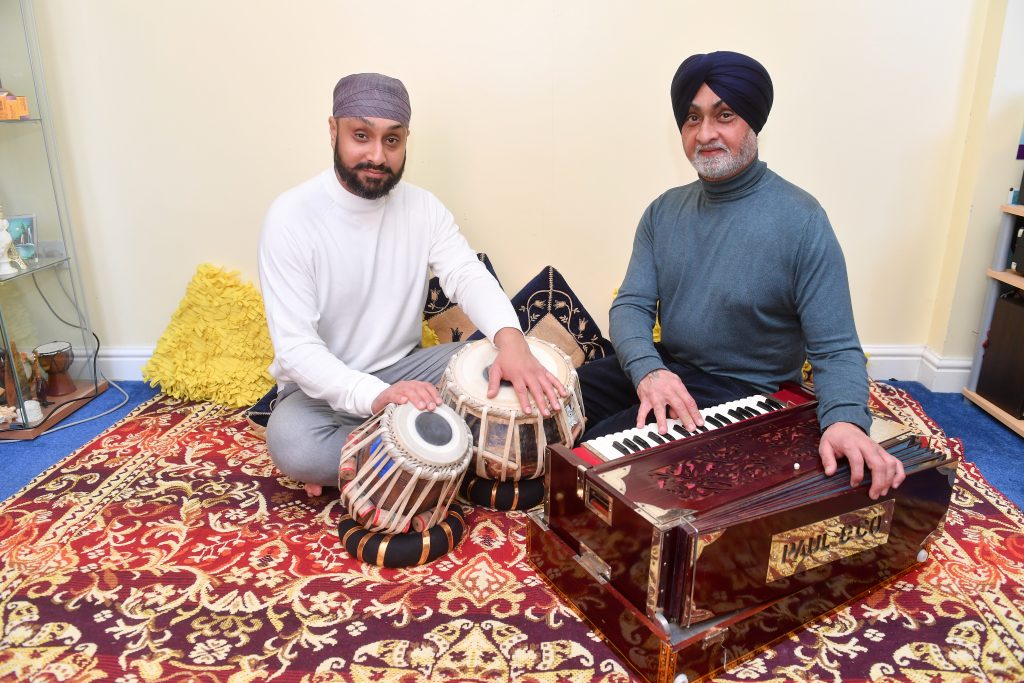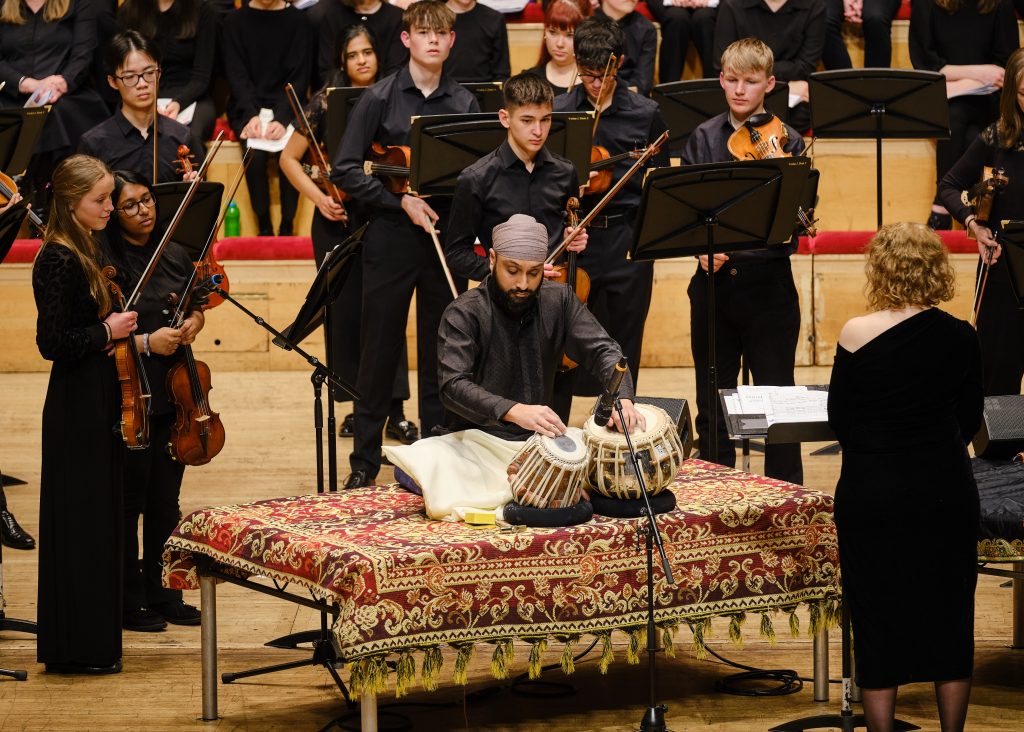Bhindarjit Neer is the son of legendary Leicester musician Daljit Neer – a prolific and widely respected singer in the Punjabi community.
Here he discusses how he’s helping to continue his father’s musical legacy, by teaching the Indian tabla to children in Leicester and beyond…

When you meet Bhindarjit Neer, it’s impossible not to be captivated by his energy and his passion for music – something which has been there for as long as he can remember he says…
This may not come as a surprise to those who know of his father – the legendary musician Daljit Neer, who lives right here in Leicester. Daljit is a prolific Punjabi singer, producer radio and TV presenter, who is known throughout the UK and South Asia.
As a result of his father’s success, Bhindarjit – a talented tabla player, grew up in an extremely musical household, with plenty of opportunities to learn, and be inspired by music.
“We’d always have artists coming to the house, to be interviewed by my Dad – either for radio or TV, so I’d get an opportunity to sit with them and play with them, and learn from them,” he told Pukaar.
“That interaction was really, really important for me and the development of my music, and I was very fortunate that it happened while I was growing up. I got to feed off my Dad’s activity and see what was going on in his world and I learned a lot from that…”
Bhindarjit was just six-years-old when he began learning the tabla – a popular Indian percussion instrument which he gravitated towards as a youngster.
His Dad taught him the basics of Indian classical music, becoming his “first Guru,” and he went on to be taught
by the late tabla revolutionary Bhai Gurmeet Singh Virdee Ji. He passed away in 2005, so Bhindarjit continued his learning from the doyen of Punjab Gharana Pandit Yogesh Samsi.
Today, Bhindarjit is a masterful player, who has performed on stages across the world. He also teaches the tabla to hundreds of children across the county as part of his job, working for the Leicestershire Music Service, as well as the Loughborough Schools Foundation.
“I’m trying to continue the legacy, and pass on my talent and my passion for music,” he said of his work, which sees him attend weekly sessions in schools across Leicestershire.
“I really enjoy nurturing talent and looking for it around Leicester because that’s where I grew up. I know there’s lots more out there, and the exciting part is finding it. ”
A highlight of Bhindarjit’s musical career came last March, when he got the chance to lead an enthusiastic student ensemble at Leicester’s De Montfort Hall.

The opportunity, which came through the Loughborough Schools Foundation, was “a unique chance to fuse Indian classical music with that of the Western variety”, he said recalling the experience.
“The head of strings came to me and said ‘there’s a beautiful piece which has been written for a Western orchestra, but it’s based on an Indian scale. We’d like to see if you can help us fix it for a performance at De Montfort Hall.’ I was only too happy to oblige,” he revealed.
“When we performed, there was a full house, so that was exciting. Also a lot of the parents and governors in the audience came from a different background – one where they don’t get exposed to a lot of Indian music, so it was great to be able to share that – a really special night.”
One of the other joys of Bhindarjit’s job, is getting to share his passion, and giving children the opportunity to shine and gain confidence through music.
“It’s something which worked wonders when I was growing up. I was never very academic at school, so music helped me a lot,” revealed the 40-year- old.
“It’s great for a child’s development – their confidence and their cognitive function.”
Despite excelling in music during his school days, Bhindarjit took jobs in banking, sales and admin once he reached adulthood.
He took ‘safe’ 9-5 jobs in order to make ends meet. However music was always where his true passion lay.
When the opportunity came to teach through the Leicestershire Music Service, he seized it with both hands, and is currently on a path where he feels he can really make a difference.
“It’s so rewarding and I’m where I’m meant to be, absolutely,” he said of his profession.
“When you’re out there in schools, you get to see children who aren’t academic but are very creative in a field, and I see myself when I was growing up.
“As soon as I see an opportunity like that, I don’t let it miss. I try my best to make sure that child gets an opportunity. You never know where it could lead… ”
“I’ve seen children transformed as a result of music. Their eyes light up and they become alive and empowered as a result. That for me is the real reward.”
By Louise Steel



